- News
Coordinators of pedagogy careers reflect on the curricular implementation of the renewed programs
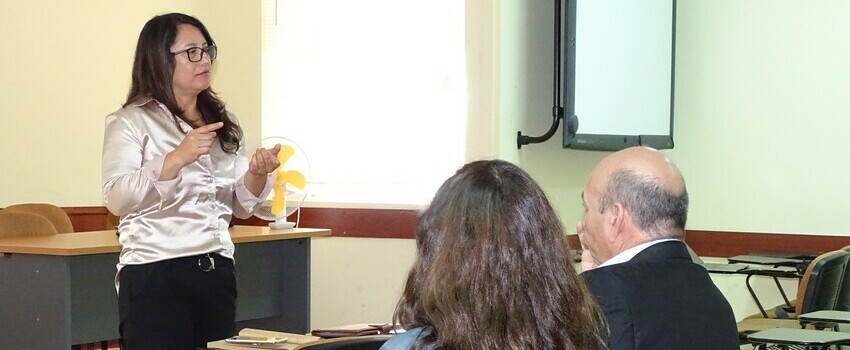
The instance is part of the actions carried out by the Integrated Management Unit of Pedagogies (UGIP) to support ULS pedagogy courses in the implementation of the renewal of their Study Plans.
One of the great commitments that the UGIP assumed through the Institutional Improvement of Pedagogies Project was to accompany the teams of each ULS pedagogy career in the implementation of their respective renewed programs, which were launched in March of 2019.
This work has been carried out by the UGIP team, who have carried out various actions to guide this process. One of these actions was to generate a self-report, with the purpose of collecting the perception of the academics who taught classes during the first semester in the courses of the renewed curriculum. Likewise, I sought to know the vision of the career coordinators and school directors themselves regarding the curricular appropriation of these programs.
“All majors have participated in the accreditation process, and one of the great challenges for our Universities is the self-regulation processes, an opportunity for majors to look at their own curriculum and the educational trajectory of their students. One of the mechanisms that have been designed within the UGIP, to support programs in self-regulating their training processes, is self-reporting, a mechanism on which we have been working today. It is the academic's own form of self-evaluation, where he says how far he feels participating in the curriculum,” explained Dr. Rodrigo Ruay, UGIP researcher.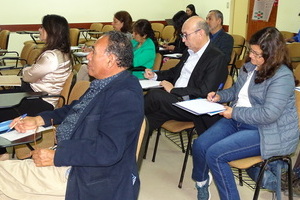
In this context, the Curricular Implementation Monitoring Day was held with the participation of both coordinators and directors, who were able to learn about the main findings found in the work carried out in this report, data that will serve as a basis for the self-regulation mechanisms of each career. The main dimensions surveyed were related to the name of the learning outcomes; the learning environment in which the classrooms were developed; time management; and learning resources, which allowed for a survey of information on the teachers' perception regarding the development of the curriculum during the first semester.
“Not only must we be aware of all those management mechanisms that we need for curricular implementation and its achievements, but also an understanding of our own capabilities to redefine the reality within our careers, it is a need that we have always been visualizing, but We have not always had the conditions to carry it out. Curricular appropriation means, from one perspective, fully understanding all those curricular devices that will allow us to understand the curriculum, but also the improvements that we can make. And the challenge of this curricular appropriation is how we are able to identify what our careers need,” explained Dr. Sandra Álvarez, academic coordinator of the UGIP.
In this way, the conference contributed to responding to the external requirements that are currently demanded in terms of teacher training and also to the internal needs, which are focused on improving the curricular quality of their pedagogical careers.
Written by Daniela Ledezma, UGIP.

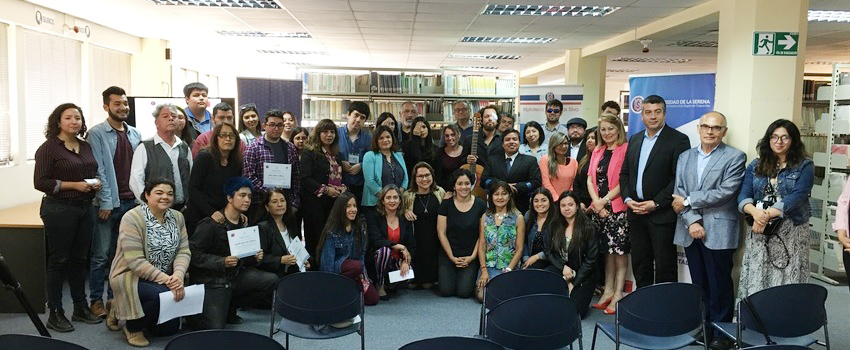
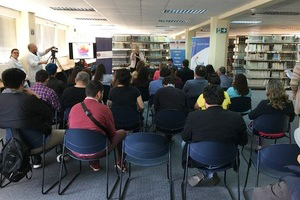
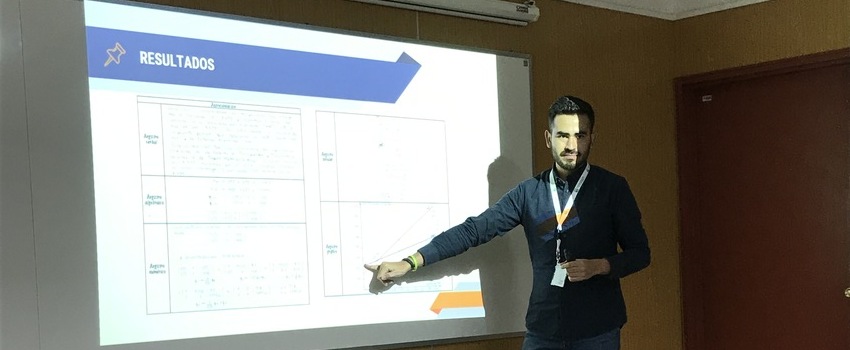
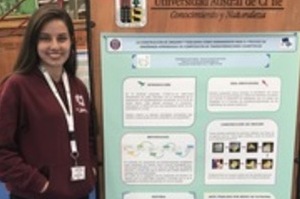 In this context, the academic of the Department of Mathematics, Diego Contreras, participated with the presentation of the classroom experience: “A didactic proposal: application of semiotic representation registers in linear algebra”, an initiative that is part of the curricular renewal of the Mining Engineering and Mechanical Engineering careers of the university.
In this context, the academic of the Department of Mathematics, Diego Contreras, participated with the presentation of the classroom experience: “A didactic proposal: application of semiotic representation registers in linear algebra”, an initiative that is part of the curricular renewal of the Mining Engineering and Mechanical Engineering careers of the university.
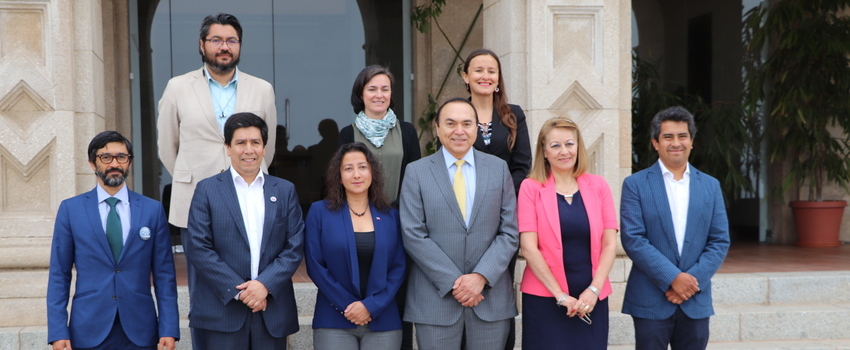
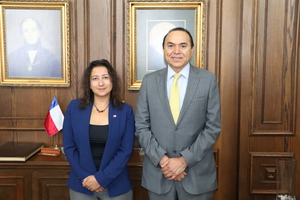
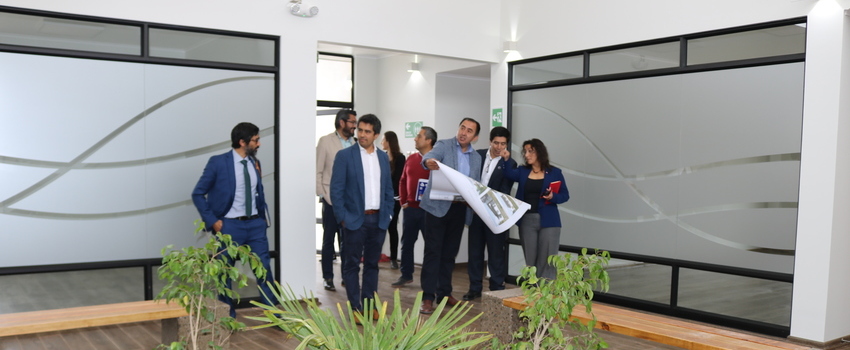
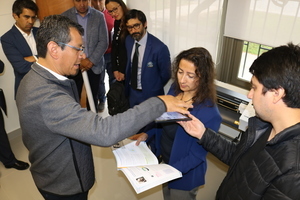 The new Seremi, in the company of the Vice-Rector for Research and Postgraduate Studies, Dr. Eduardo Notte, the Director of Postgraduate and Postgraduate Studies, Dr. Cristian Ibáñez, the Director of Research and Development, Dr. Sergio Torres and the Director of Strategic Development and Quality, Dr. César Espíndola, took a tour of the laboratories of the Food Engineering and Biology departments, in addition to visiting the new facilities arranged for the Multidisciplinary Institute of Science and Technology, to end by meeting with academics from the Physics and Astronomy departments .
The new Seremi, in the company of the Vice-Rector for Research and Postgraduate Studies, Dr. Eduardo Notte, the Director of Postgraduate and Postgraduate Studies, Dr. Cristian Ibáñez, the Director of Research and Development, Dr. Sergio Torres and the Director of Strategic Development and Quality, Dr. César Espíndola, took a tour of the laboratories of the Food Engineering and Biology departments, in addition to visiting the new facilities arranged for the Multidisciplinary Institute of Science and Technology, to end by meeting with academics from the Physics and Astronomy departments .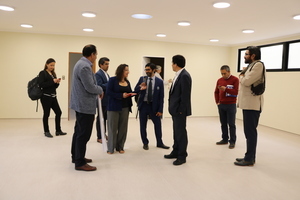 The academic of the Department of Biology and Executive Director of the Laboratory of Research and Technological Innovation for Science Education of the University of La Serena LIITEC-ULS, Francisco López, presented the Makespace of the laboratory, where technological creation is developed with mobile reality applications increased. “Our commitment is to share knowledge through innovation, and one of the ways is through education. To the extent that we form advanced human capital and that innovation moves from the classroom outwards, we are collaborating with that area.”
The academic of the Department of Biology and Executive Director of the Laboratory of Research and Technological Innovation for Science Education of the University of La Serena LIITEC-ULS, Francisco López, presented the Makespace of the laboratory, where technological creation is developed with mobile reality applications increased. “Our commitment is to share knowledge through innovation, and one of the ways is through education. To the extent that we form advanced human capital and that innovation moves from the classroom outwards, we are collaborating with that area.”